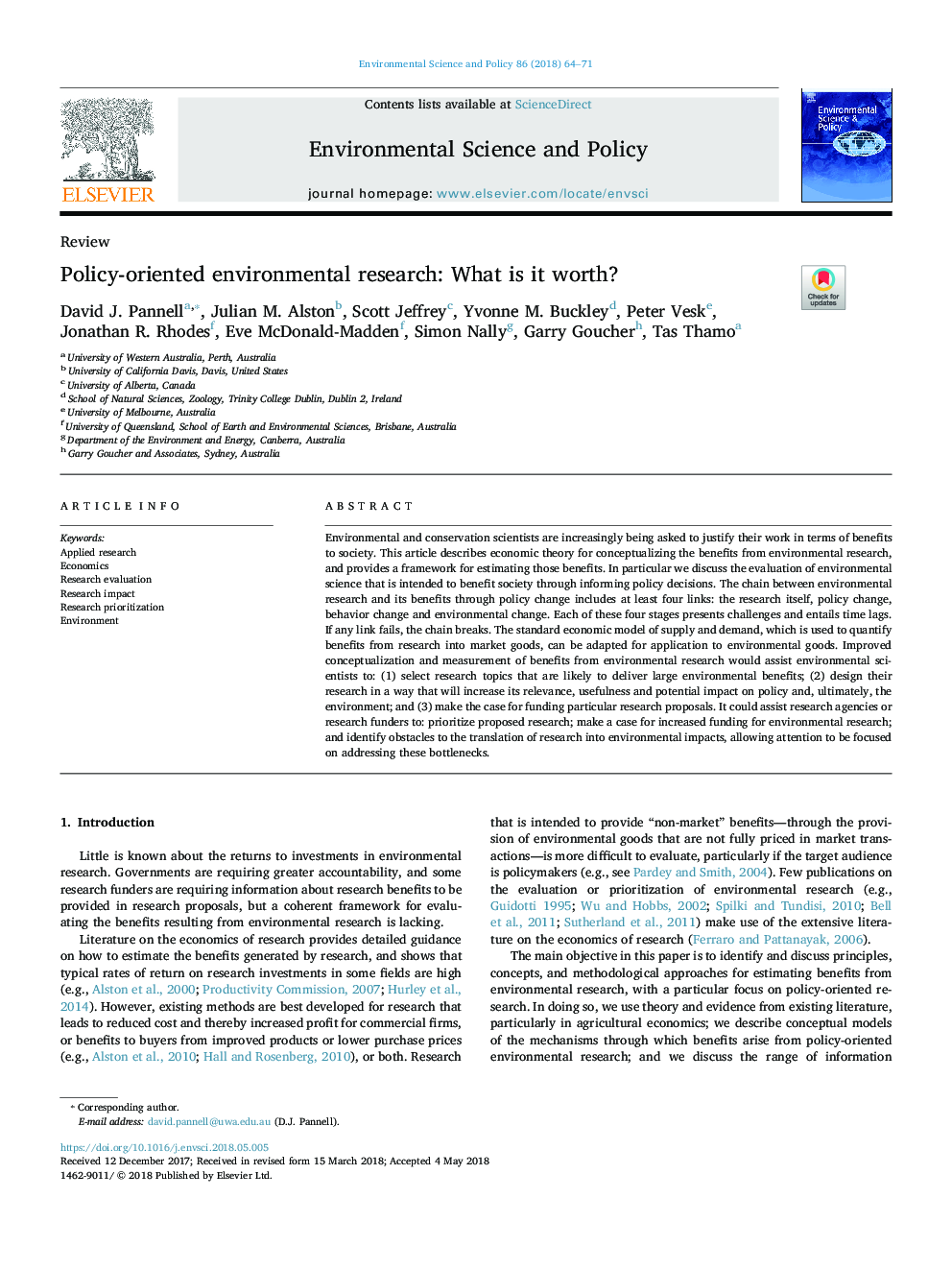| Article ID | Journal | Published Year | Pages | File Type |
|---|---|---|---|---|
| 7465845 | Environmental Science & Policy | 2018 | 8 Pages |
Abstract
Environmental and conservation scientists are increasingly being asked to justify their work in terms of benefits to society. This article describes economic theory for conceptualizing the benefits from environmental research, and provides a framework for estimating those benefits. In particular we discuss the evaluation of environmental science that is intended to benefit society through informing policy decisions. The chain between environmental research and its benefits through policy change includes at least four links: the research itself, policy change, behavior change and environmental change. Each of these four stages presents challenges and entails time lags. If any link fails, the chain breaks. The standard economic model of supply and demand, which is used to quantify benefits from research into market goods, can be adapted for application to environmental goods. Improved conceptualization and measurement of benefits from environmental research would assist environmental scientists to: (1) select research topics that are likely to deliver large environmental benefits; (2) design their research in a way that will increase its relevance, usefulness and potential impact on policy and, ultimately, the environment; and (3) make the case for funding particular research proposals. It could assist research agencies or research funders to: prioritize proposed research; make a case for increased funding for environmental research; and identify obstacles to the translation of research into environmental impacts, allowing attention to be focused on addressing these bottlenecks.
Keywords
Related Topics
Physical Sciences and Engineering
Energy
Renewable Energy, Sustainability and the Environment
Authors
David J. Pannell, Julian M. Alston, Scott Jeffrey, Yvonne M. Buckley, Peter Vesk, Jonathan R. Rhodes, Eve McDonald-Madden, Simon Nally, Garry Goucher, Tas Thamo,
